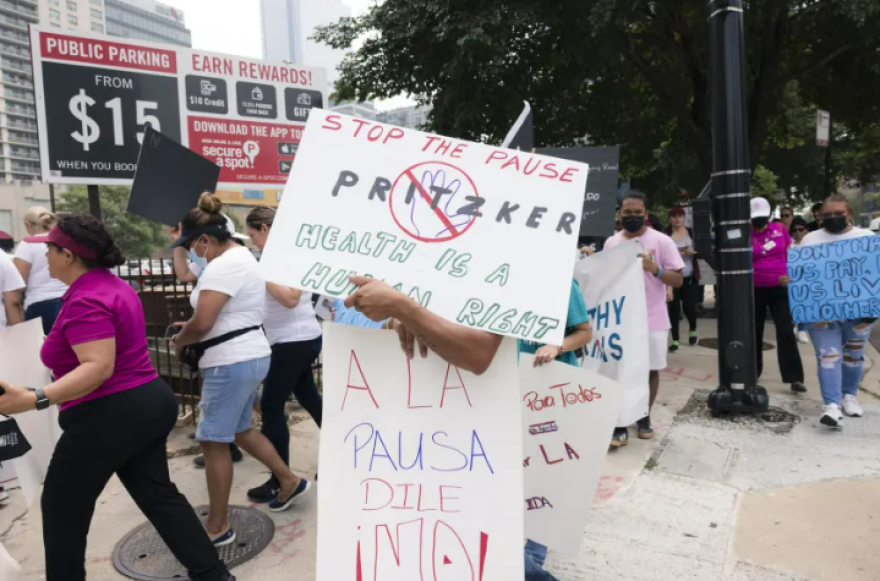Gov. J.B. Pritzker’s administration on Tuesday clarified a controversial element of its proposed changes to health care coverage for undocumented persons — just as advocates had gathered for a virtual hearing to publicly criticize the cuts.
Citing the ballooning cost to the state, Pritzker in July had filed emergency rules to temporarily pause enrollment in the Health Benefits for Immigrant Adults program, which made individuals 42 to 64 eligible for Medicaid based on income levels, not their citizenship status. A similar program for noncitizens aged 65 and older also will be paused when enrollment reaches 16,500.
The changes also included required co-pays of $250 for inpatient hospitalizations and $100 for emergency room visits, if the services they received weren’t eligible for reimbursements from the federal government.

But on Tuesday, just as advocates argued the changes were too costly for low-income patients, the Illinois Department of Healthcare and Family Service sent out a notice to providers, writing that co-pays have not been implemented yet — and cost-sharing from providers should be completed before patients are asked to dole out co-pays or coinsurance.
“Providers should not charge cost-sharing for this population until further notice and any cost-sharing that providers may have already collected must be returned to the customer,” wrote Kelly Cunningham, the state’s administrator for Division of Medical Programs.
Later Tuesday, the governor’s office said co-pays never should have been charged during the emergency rules period anyway, as the department sought to write permanent rules on co-pays — which it does expect to resume eventually.
Advocates from the Healthy Illinois Campaign said the notice was sent to providers at 11:49 a.m. The virtual public hearing began at 11 a.m. and lasted more than two hours.
At the hearing, health care and immigrant rights advocates had argued the rule changes were too costly for low-income patients, noting that some co-pays amounted to more than 20% of monthly income for some people in the program.
“The proposed high co-payment will impact both patients and providers by discouraging patients from seeking the care they need to treat medical emergencies and by increasing the overall health care cost when those medical emergencies go untreated,” said Adela Carlin of Illinois Partners for Human Service.
Carlin urged the administration to form a working group, which would also include immigrants, to further discuss the changes. Others said that cutting the program doesn’t make economic sense — as patients neglect preventative care and come back later for more serious medical conditions.
“I understand today’s conversation is about making the programs more viable so I’ll note that the cost this past year reflects pent up health care demand and withholding coverage without looking at the fuller economic picture is not the answer,” Thomas Kim, chief medical officer at Esperanza Health Centers said.
Meghan Carter, an attorney for the Legal Council for Health Justice, criticized the administration for not providing more notice about the changes, especially for those who don’t speak English.
“It is difficult to overstate how critical, timely and clear notice to our clients in their preferred language is,” Carter said. “Many of our clients have a primary language other than English, and their longstanding exclusion from coverage creates unfamiliarity with its complexities. The more time that passes without clear notice, the more fear, rumor and misinformation will filter in.”
The emergency rules — which took effect July 1 and remain in place for 150 days from that date — are being considered by the Joint Committee on Administrative Rules, which can vote to suspend the changes, object to them and ask the administration for a response, or do nothing, which would leave the rules in place. The administration will appear at a hearing of that joint committee to provide updates on enrollment of the programs.
Pritzker’s administration said health care for noncitizens who are otherwise ineligible for Medicaid would have risen to $1.1 billion without a cap on enrollment. This year’s budget capped spending on the program at $550 million.
RELATED
Immigrant advocates slam Pritzker for cutting health care program for noncitizens


